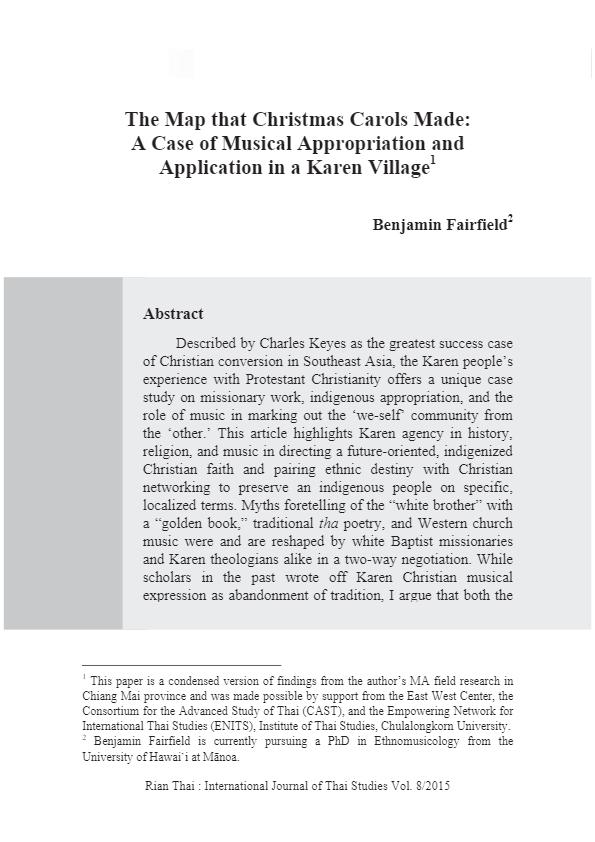Benjamin Fairfield
Abstract
Described by Charles Keyes as the greatest success case of Christian conversion in Southeast Asia, the Karen people’s experience with Protestant Christianity offers a unique case study on missionary work, indigenous appropriation, and the role of music in marking out the ‘we-self’ community from the ‘other.’ This article highlights Karen agency in history, religion, and music in directing a future-oriented, indigenized Christian faith and pairing ethnic destiny with Christian networking to preserve an indigenous people on specific, localized terms. Myths foretelling of the “white brother” with a “golden book,” traditional tha poetry, and Western church music were and are reshaped by white Baptist missionaries and Karen theologians alike in a two-way negotiation. While scholars in the past wrote off Karen Christian musical expression as abandonment of tradition, I argue that both the act of appropriation and the results of domesticating Western religious music challenge essentialist conceptions of “foreign” and “authentic” in Karen culture. This article will examine general religious historical contexts before launching into an analysis of one specific Karen community in Thailand that enacts these ideas in musical practice, appropriating Christmas carols as a mediating technology and setting ethnic boundaries through aural mapping. In order to examine these trends, I condense historic and contemporary ethnographic narratives, apply Thongchai Winichakul’s theories on mapping as a mediating technology, and draw upon musical and ethnographic data from my own field research in Chiang Mai province.
(Published in Rian Thai: International Journal of Thai Studies, Volume 8/2015, Page 63-85)
Full Text : Download
